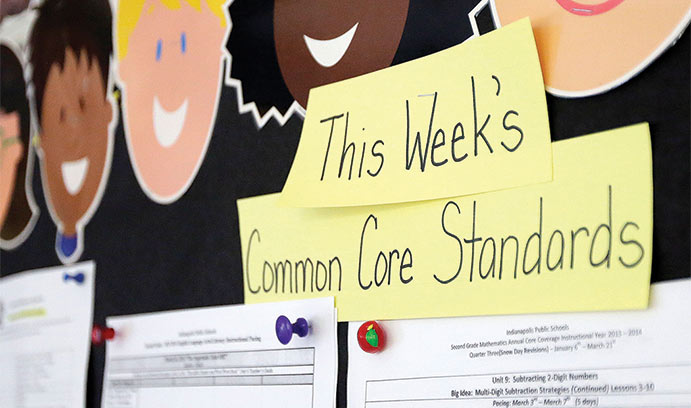A Common (Core) Problem

The Common Core debate has reached a fevered pitch.
Although Americans often grouse about their taxes, we typically understand the benefits of a well-educated citizenry. Literate and numerate neighbors positively contribute to the social, political, and economic well-being of our communities. Because of such universal benefits, even citizens without children must pay taxes that fund public schools. However, public education can also lead to private benefits. Seizing opportunities provided by the public education system, students acquire the knowledge and skills that give them a competitive advantage in college admissions, job placement, and other such arenas.
The strongest argument for the Common Core emphasizes the public benefit of education. The implementation of common standards attempts to ensure that every student who receives a public education, which is approximately 90 percent of all students in the United States, masters the same material, regardless of a student’s background. In other words, the content of material taught to and expectations of a student from an impoverished background is exactly the same as those for a student from a privileged background.
The strongest argument against the Common Core emphasizes the private benefit of education. Recognizing the importance of a quality education, opponents of common standards want the ability to secure educational opportunities that provide a competitive advantage. Simply put, parents would like a good education for all children, but a little better for their own.
Do I support or oppose the Common Core?
Yes.
And that is the real problem of the Common Core.
—Craig Hochbein, assistant professor of Educational Leadership
Posted on:


